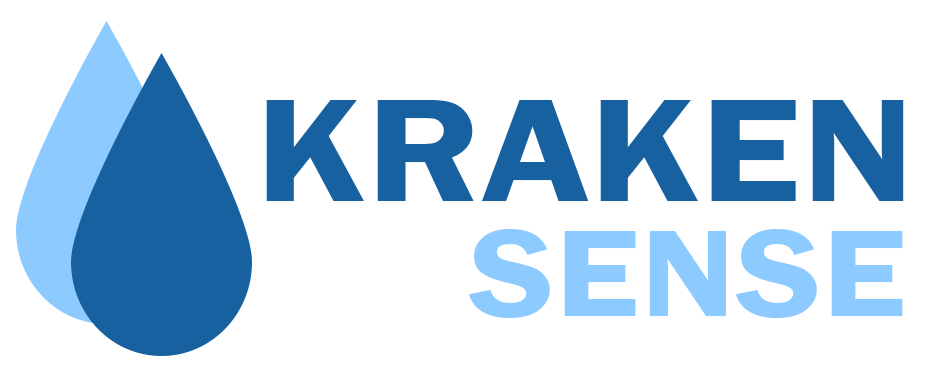
Canada's Technological Pioneers: The 7th Sci Innovation Competition
Meet the 14 finalists of the 7th Sci Innovation Competition!

World Food Day: Nourishing Our Planet and Promoting Sustainability
Every year on October 16th, we come together to celebrate World Food Day. As our global population continues to grow, it becomes increasingly crucial to address the challenges of providing nutritious and sustainable food for all to create a more equitable world.

One Health: Safeguarding Human, Animal, & Environmental Health
One Health is a holistic approach that recognizes the interconnectedness of human health, animal health, and the environment. Learn how Kraken Sense is leveraging One Health principles to safeguard water sources and protect the health of our people, animals, and environment.

Thanksgiving Food Safety: Your Ultimate Guide to a Healthy Holiday Feast
As the holiday season approaches, many of us eagerly anticipate the delicious Thanksgiving feast that awaits. However, it's essential to prioritize food safety to ensure that your celebration is not marred by foodborne illnesses.

From Genes to Germs: How DNA Analysis Enhances Pathogen Detection
Explore how DNA analysis techniques have revolutionized pathogen detection, allowing for rapid, precise, and specific identification of microorganisms in various fields.

International Day of Awareness on Food Loss and Waste Reduction
Every year, millions of tons of food are lost or wasted across the globe. International Day of Awareness on Food Loss and Waste Reduction, observed on September 29th, serves as a reminder of the urgent need to address this global challenge to minimize the effects on world hunger, resource loss, and climate change.

World Maritime Day: Safeguarding Water Quality and Combating Pathogen Contamination
On World Maritime Day, we recognize the significance of maritime industries and their impact on the global economy. As we navigate through environmental challenges, it is essential to prioritize research, innovation, and international collaboration to protect and restore our marine ecosystems for a sustainable future.

The Cost of Contamination: Economic Implications of Foodborne Diseases
Beyond the immediate health consequences, the cost of contamination in our food supply has far-reaching effects on economies worldwide. Unmask the invisible threat of foodborne pathogens and discover the intricate relationship between food safety, public health, and economic stability.

From Farm to Fork: Tracing Listeria's Journey in the Food Chain
Listeria contamination can occur at different stages of the food chain, starting from the farm where the produce is grown, through processing and distribution, until it reaches the consumer's plate.

Understanding Biofilms and Their Impact on Water Quality
Biofilms are complex microbial communities that form on pipes, tanks, and filtration systems, posing a significant challenge to water treatment and distribution systems. Understanding biofilms and their impact on water quality is crucial for maintaining clean and safe water supplies.

Spotting Water Quality Problems Early: The Benefits of Continuous Monitoring
Waterborne pathogens pose a significant threat to public health, causing diseases such as gastroenteritis, cholera, and hepatitis. Continuous monitoring of these pathogens is crucial to prevent outbreaks and ensure the safety of our water supply.

Biosurveillance and Disease Monitoring: The Key to Early Detection and Prevention
In an interconnected world where diseases can quickly spread across continents, biosurveillance has become a crucial tool for early detection and prevention. Kraken Sense develops real-time, autonomous pathogen detection devices for wastewater, serving as an early warning for disease outbreaks to protect public health.

Salmonella Uncovered: Examining the Common Culprit of Foodborne Illness
Salmonella is responsible for millions of cases of foodborne illness worldwide, making water monitoring essential to protecting public health.

Monitoring Microbiologically Influenced Corrosion (MIC) with Intact Cell Count (ICC)
Microbiologically Influenced Corrosion (MIC) is a destructive issue in various industries, resulting in safety hazards, environmental concerns, and financial losses. The Intact Cell Count (ICC) method provides insights into the presence and activity of corrosive microorganisms, allowing for early detection of MIC.

International Day of the World’s Indigenous Peoples
International Day of the World's Indigenous People is observed to celebrate the rich cultural heritage and invaluable contributions of Indigenous communities around the globe. This day serves as a reminder of the unique challenges these communities face, particularly when it comes to safeguarding their environment and natural resources.

From Bacteria to Viruses: The Different Pathogens Lurking in Our Water
Water is a vital resource for all living organisms, but it can also serve as a breeding ground for various pathogens. Understanding these pathogens and their risks is crucial for safeguarding water supplies and preventing waterborne diseases.

Hot Spots and Cool Hazards: Legionella in Building Water Systems
Legionella poses a significant risk to public health, particularly in building water systems. By implementing real-time pathogen detection, we can mitigate the risks of Legionella and ensure safer environments for all.

Why Your Lab E. coli Results Are Lying to You
Accurate measurements of E.coli are crucial to public health, food safety, and research. However, traditional CFU units are often inaccurate and imprecise. Learn more about the reliability of copies/mL and the importance of strain-specific measurements.

IAFP 2023: Empowering Food Safety Through Real-Time Pathogen Detection
We were honored to attend the International Association for Food Protection (IAFP) 2023 conference! It was an extraordinary experience that brought together top professionals from around the world to discuss pressing food safety issues and explore groundbreaking technological innovations.

Preventing Avian Flu: How KRAKEN Real-Time Pathogen Detection Can Make a Difference
Avian flu outbreaks have been a growing concern worldwide, with recent developments suggesting the virus may adapt to infect humans more easily. With the fast-spreading nature of infectious diseases, real-time surveillance measures are necessary to curb the spread.
